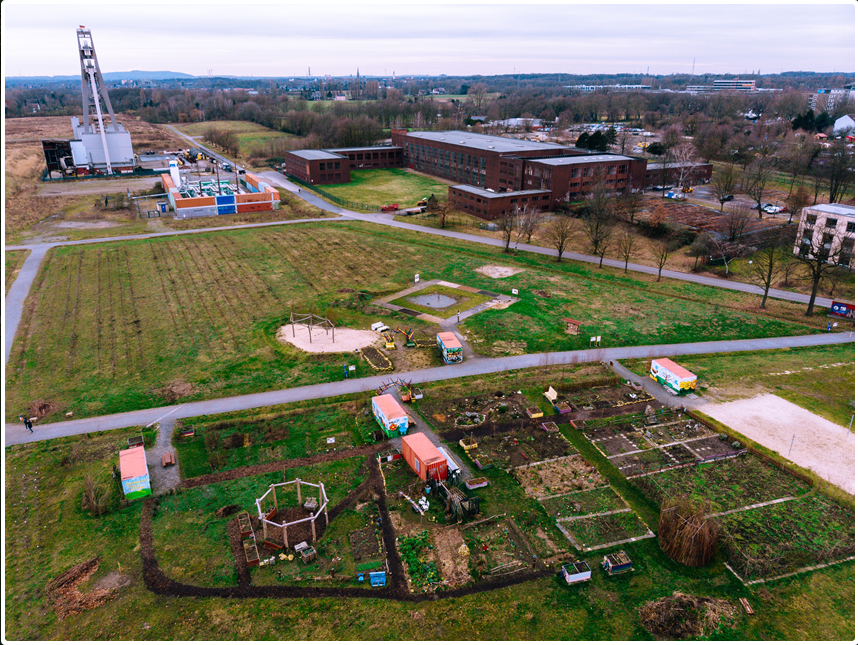
Urban gardening and re-greening of a former coal mine:
History of the Biomass Park:
Coal was mined from the Hugo Colliery in Gelsenkirchen for nearly 130 years, where generations of miners, built the economy, of the Ruhr region. Mining activity finished in 2000, when the supporting infrastructure was almost completely demolished. The result was one of many industrial wastelands that characterise the Ruhr region.
Over 2 decades later, the site has received a new lease of life thanks to an ambitious urban greening project which includes a vibrant community gardening component. The “Hugo Biomass Park” has been redeveloped as a public recreation area of around 25 hectares, on land where there was previously no public access. The site now features an energy woodland with short rotation coppice, paths for walking and cycling and species-rich wildflower meadows. The semi-natural areas also provide a home to rare species, including natterjack toads.
A participatory Approach:
The Association for the Green Laboratory in Hugo Biomass Park eV was formally founded in 2017. It was founded with the following objectives:
-
To support for educational projects for schools, day-care centres and clubs
-
Protection and maintenance of ecologically valuable habitats
-
Community gardening; colourful and involving both young and old
-
Creation of fun spaces for families, children, senior citizens and anyone interested from the neighbouring districts
Such a multi-faceted project could, however, only succeed through involving the knowledge and experience of many diverse partners. These included the landowners, RAG Montan Immobilien GmbH, the NRW Ministry of the Environment (MKULNV NRW), the Ruhr University of Bochum, the local Forest Department (NRW Wald und Holz), the City of Gelsenkirchen and the Agenda 21 office. Problems included the need to import topsoil from external locations. The input of local citizens was also considered as being key. More than 20 educational institutions, initiatives and associations refined the original concept through eight workshops and ensured a community-based planning approach.
Activities on the site:
The Biomass Park serves as a place for informal learning, play and well-being for people from all age groups and walks of life. Schools, day-care centres, clubs and associations use the area as a large learning, play and leisure resource. The educational concept is supported by courses that take place on the environmental interpretive trail , the “soil adventure” trail (Under Us), in the apiary and community garden.
Former sea containers have been painted in attractive colours and have quickly become features for park visitors. They serve the children, young people and gardeners as a storage facility, for wet weather protection, as a workplace and also an exhibition space. There are also plenty of opportunities for fun on offer: play and climbing facilities for the little ones, whilst adults have a beach volleyball court and plenty of seating for relaxing and chatting. The group is relatively informal and welcomes the participation of anyone who would like to lend support to the initiative.





